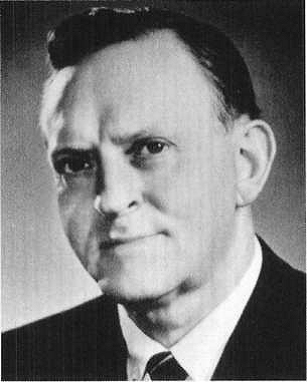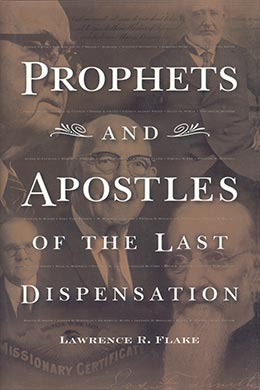Alvin Rulon Dyer
Lawrence R. Flake, Prophets and Apostles of the Last Dispensation (Provo, UT: Religious Studies Center, Brigham Young University, 2001), 301–3.

Born: 1 January 1903, Salt Lake City, Utah
Assistant to the Quorum of the Twelve: 11 October 1958
Ordained an apostle (not in the Quorum): 5 October 1967
Additional counselor to President David O. McKay: 6 April 1968 (age 65)
Assistant to the Quorum of the Twelve: 23 January 1970
First Quorum of the Seventy: 1 October 1976
Died: 6 March 1977 (age 74), Salt Lake City, Utah
At West High School in Salt Lake City, Alvin R. Dyer was a member of a very popular vocal quartet. Because of their outstanding talent, they received a contract to go on a vaudeville circuit to sing for forty-two weeks, a very appealing journey to the eighteen-year-old musician. But the Lord had other plans—the young man’s bishop called him on a mission. Alvin showed his willingness to serve the Lord by accepting the call and abandoning the fun and glamour of a singing career.
In high school, Alvin, who came from a family of thirteen children, distinguished himself as an outstanding baseball pitcher. One of the young classmates who cheered his team on to victory, May Elizabeth Jackson, later became his wife; they became the parents of a son and a daughter. Upon his return from the Eastern States Mission, where he labored from 1922 to 1924, he was offered a start in professional baseball and even signed a contract to play with one team. At about the same time, however, he was called to serve as a member of a bishopric. Once again he could see that this exciting athletic career, with its obligation to play on Sundays, would interfere with his Church responsibilities. Although he had a great desire to play baseball, he withdrew from the contract and accepted the calling in the Church.
Professionally Brother Dyer was a self-made man, having taken courses in mechanical drafting and technical engineering by correspondence while earning his living as a sheet metal worker. He became extremely successful in the heating and ventilating business, managing that department in the Utah Builders Supply from 1934 to 1949, when he opened his own prosperous distributorship.
While he was serving his sixth year as bishop of the Monument Park Ward in Salt Lake City, Alvin Dyer received a call to preside over the Central States Mission. By now the principles of choosing to serve the Lord over other concerns was a way of life with him, and he gave up what he had hoped would become a million-dollar business to accept this calling. In the mission field, with headquarters in Jackson County, Missouri, he became fascinated with the history of the Church there. He joined the Missouri and Jackson County historical societies and wrote a history of the Mormons in that area. He originally intended the research to be for his own use, but later published the work and followed it with seven other books—several of which were written as aids to the calling he loved, missionary work.
For seven months in 1958 he served as a counselor in the general superintendency of the Young Men’s Mutual Improvement Association and was then called to serve as an Assistant to the Twelve. Though not a member of the Quorum of the Twelve, he was ordained an apostle in 1967, and in April 1968 President David O. McKay called him as an additional counselor to the First Presidency. When the First Presidency was dissolved at the death of President McKay, Elder Dyer returned to his position as an Assistant to the Twelve. He later became a member of the First Quorum of the Seventy when the Assistant to the Twelve was moved into that body. As an Assistant to the Twelve, he served as managing director of the Church Historical Department from 1972 to 1975. Elder Dyer passed away 6 March 1977 at the age of seventy-four.
While in the First Presidency, Elder Dyer made a very special trip with President McKay and President Joseph Fielding Smith, acting as their guide to the Church history sites in Missouri. He regarded this as a most wonderful experience; both being with such a great man as President McKay and being at such sacred places meant a great deal to him. He said, “I have been privileged to feel the nearness of President McKay’s spirit. I have felt the majesty of his soul as we stood in the valley of Adam-ondi-Ahman. . . where Adam, Michael, or the ‘Ancient of Days’ . . . shall in due time of the Lord visit the earth for an important reason, and while there, hearing President McKay utter quietly, ‘This is a most holy place.’ I have shed tears of joy and of sorrow with this great man upon occasions.” [1]
Notes
[1] Improvement Era, December 1967, 59–60. See also “Alvin R. Dyer: Apostle,” Improvement Era, November 1967, 41; “Alvin R. Dyer: Assistant to the Twelve,” Improvement Era, December 1958, 903; “Services Pay Tribute to Elder Alvin Dyer,” Church News, 12 March 1977, 4.
